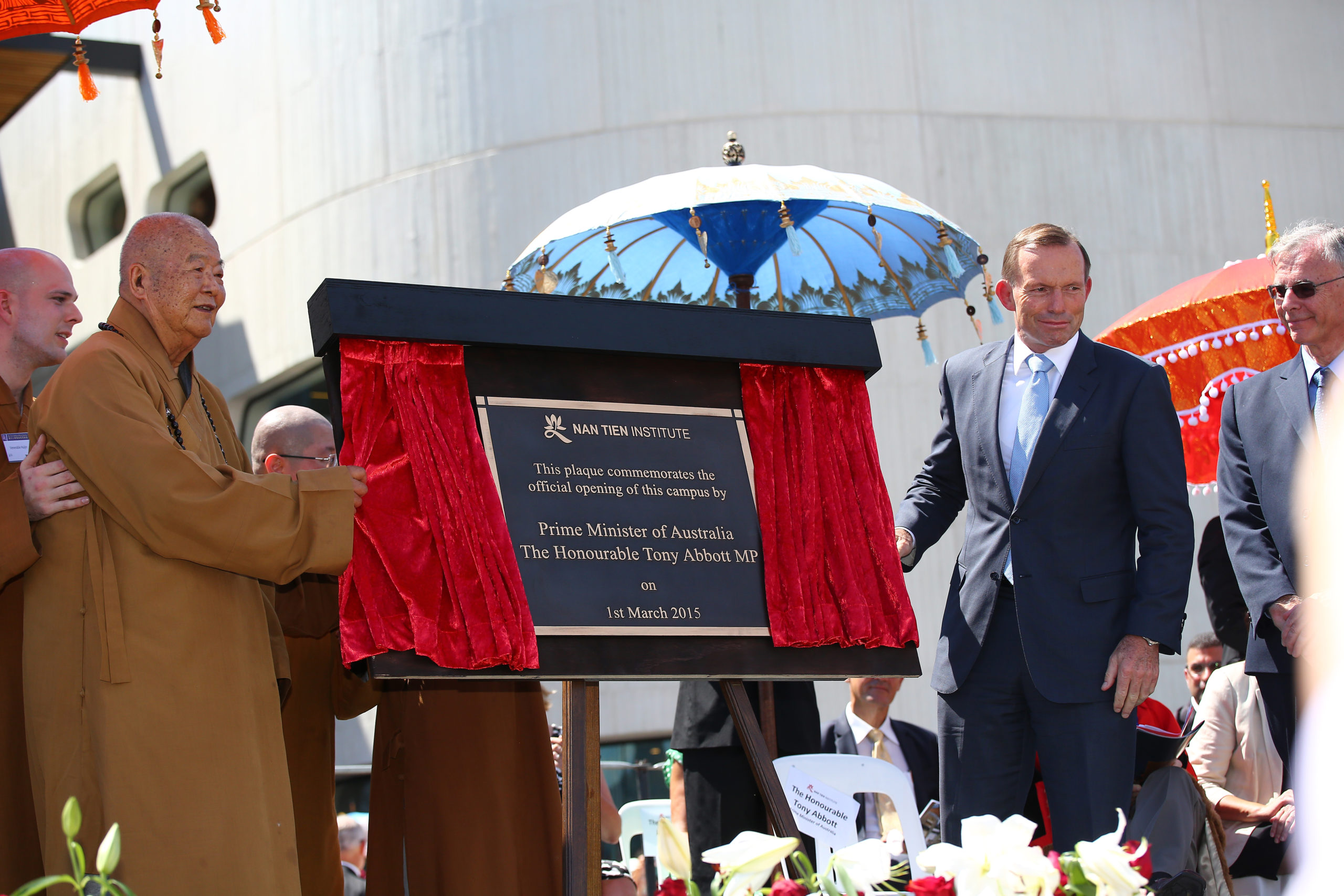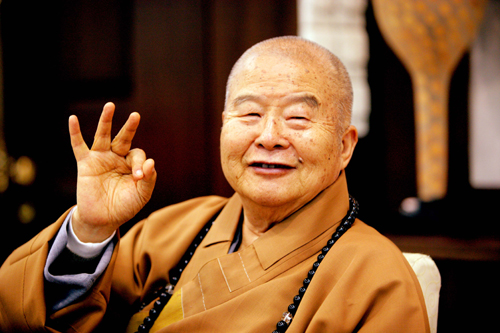About the Founder
Venerable Master Hsing Yun
Venerable Master Hsing Yun arrived in Taiwan in 1949. In 1953, he founded organizations such as the Buddhist Chanting Association of Yilan at Leiyin Temple, in Yilan, and the Dharma Promotion Team. His efforts established the foundation for his subsequent endeavors in the promotion of the Dharma. He founded Fo Guang Shan Monastery in 1967, with the primary goal of promoting Humanistic Buddhism through Buddhist education, culture, charity, and propagation of the Dharma. In order to foster Buddhist professionals, the Venerable Master founded 16 Buddhist Colleges, namely Shou Shan Buddhist College, Chinese Buddhist Research Institute, and Fo Guang Shan Tsung Lin University, as well as Buddhist Colleges in Hong Kong, Malaysia, and South Africa, to name a few. Moreover, the Venerable Master has founded Chih-Kwang Vocational School, Pu-Men High School, Jiun Tou Elementary and Junior High School, the Institute of Indian Cultural Studies at the Chinese Cultural University, University of the West in the United States, Fo Guang University in Yilan, Nanhua University in Chiayi, Nan Tien Institute in Australia, and Guang Ming College in the Philippines. Furthermore, 300 branch temples have been established worldwide, with Hsi Lai Temple, Nan Tien Temple and Nan Hua Temple as continental headquarters for North America, Oceania, and Africa respectively.


